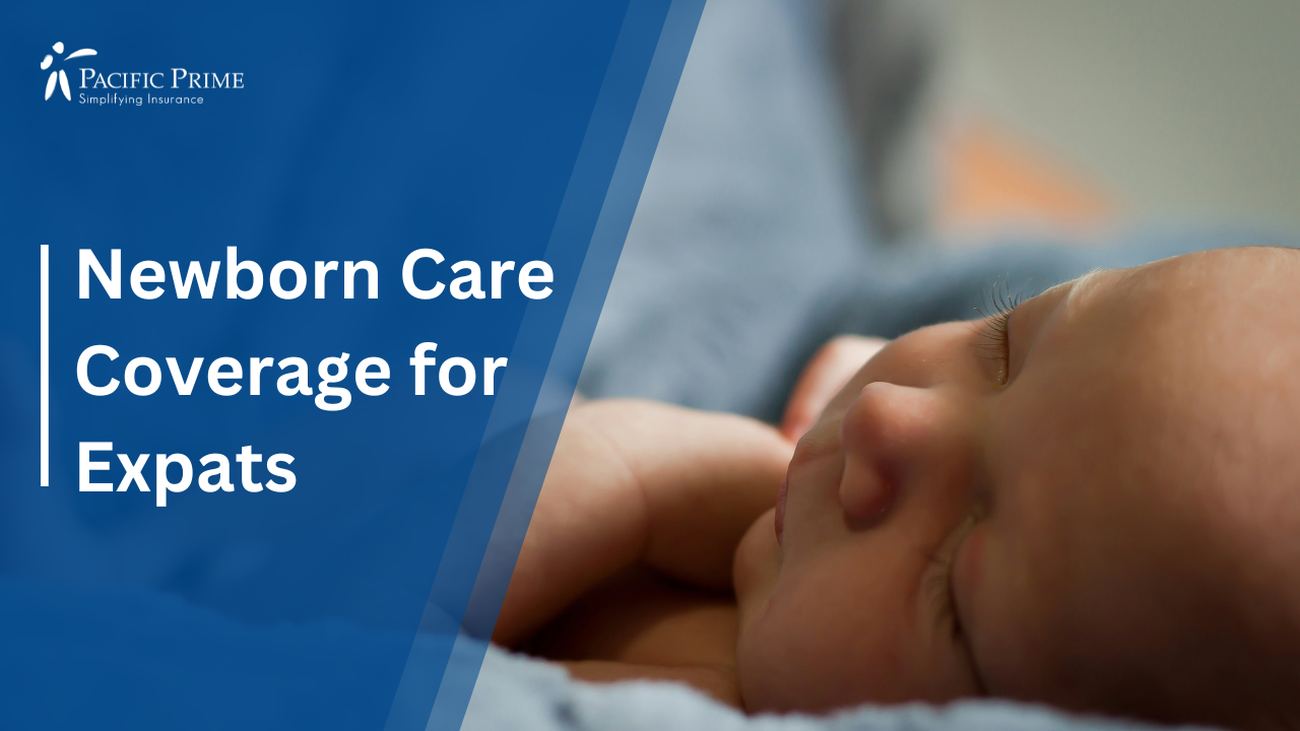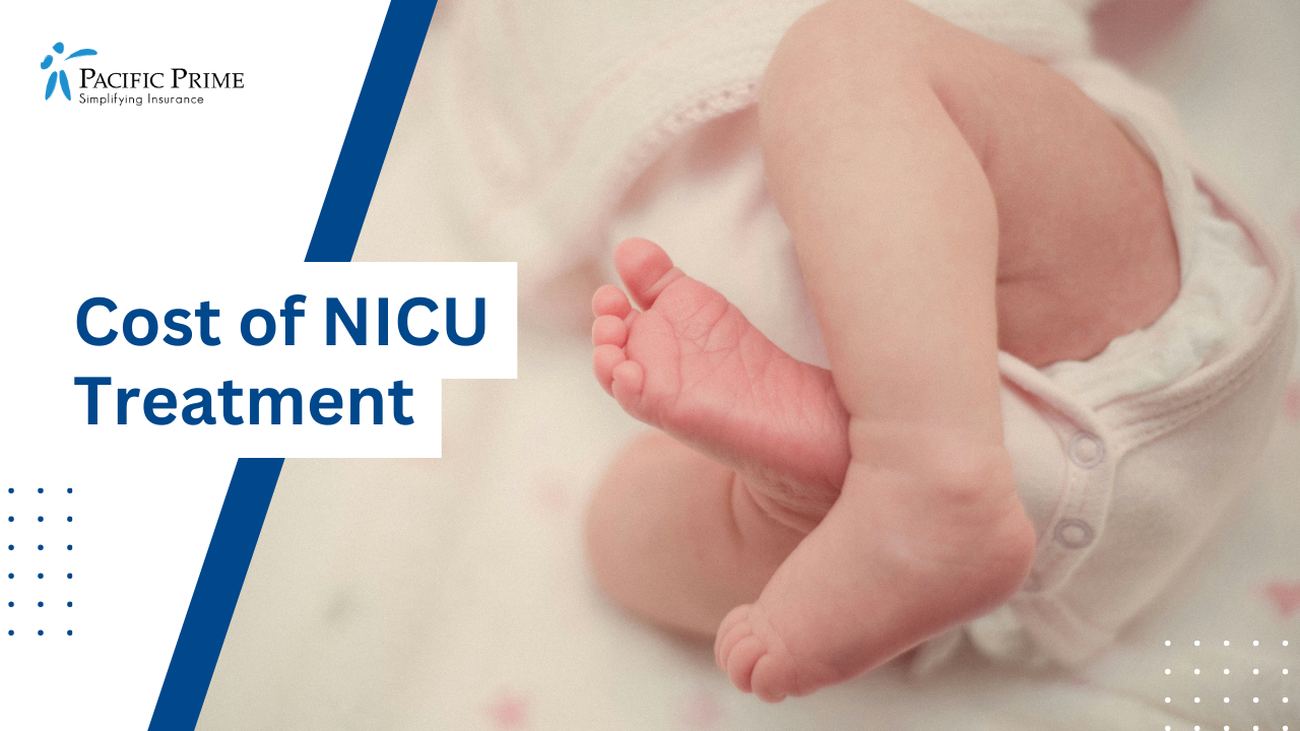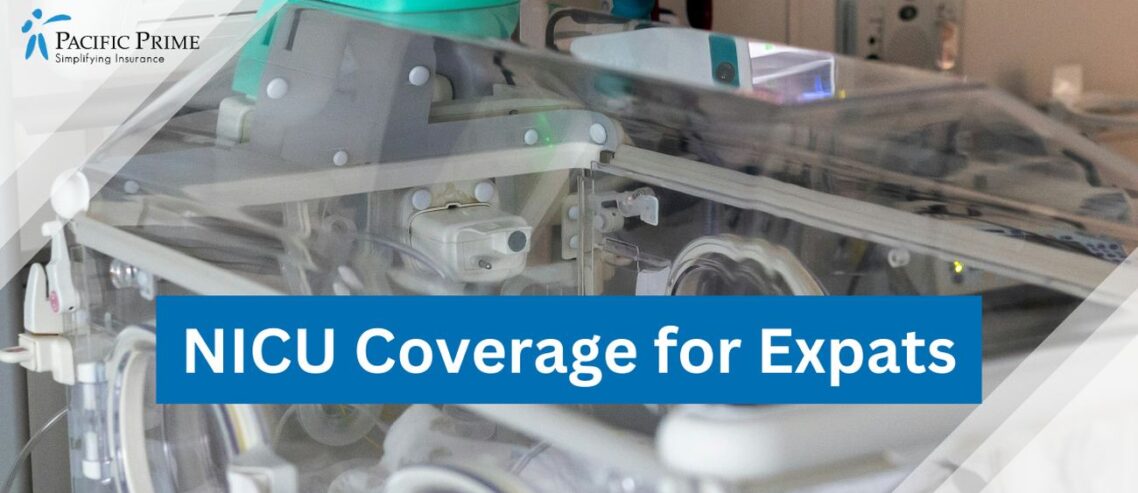NICU Coverage for Expats: Ensuring Care for Premature or Ill Infants in Foreign Hospitals
The NICU, short for Neonatal Intensive Care Unit, is a hospital ward or department specializing in providing intensive care to ill or premature newborns. Fortunately, maternity insurance can cover NICU stays to safeguard parents from potentially overwhelming medical bills.
Discover the world's top
health insurers.
Compare quotes with
a click of the button.
Are you an expat giving birth overseas and looking to secure maternity insurance? Are you wanting coverage for your newborn in case they are sent to the NICU for intensive care? Today, we will be going over NICU coverage for expats to ensure your newborns are equally as safe as they are healthy.
Newborn Care Coverage for Expats

Depending on the country you’re living in as an expat, newborn care under maternity insurance could offer additional services and benefits such as NICU hospitalization, doctor visits and vaccinations, health checkups, and lab work.
With the added benefit of NICU hospitalization, expat parents can ensure their newborn baby’s safety should the need arise for their hospitalization due to illnesses or other complications upon birth.
Because you’re living abroad as an expat, make sure to familiarize yourself with what newborn care under your selected maternity insurance policy covers.
NICU Coverage for Expats
Most maternity insurance plans should offer coverage for NICU and congenital conditions treatment along with some of the corresponding medication or services. Please make sure, however, to check with your specific health insurance provider for exact details on NICU coverage and limitations.
Because medical bills for newborn complications and NICU stays can be expensive, seeking comprehensive coverage is strongly recommended for parents.
What is the NICU?
NICU is short for Neonatal Intensive Care Unit and is a hospital ward or department complete with specialist doctors and nurses as well as equipment specializing in around-the-clock newborn care in case of severe illnesses.
Depending on the baby’s health condition and gestational age (the number of weeks in which a baby has been in the mother’s womb), the baby could stay for days, weeks, or possibly even longer.
For new parents, expats and locals alike, learning that their newborn has to be sent to the NICU will undoubtedly be a huge topic of concern. Parents will need time, appropriate information, and support from friends and family to cope with this difficult time.
Why Might My Baby be Admitted to the NICU?
From reasons as common as prematurity to infections or respiratory issues, there are multiple possible reasons why your newborn baby may need to be admitted to the NICU. Some cases may be curable in no time, while some cases may require longer, more comprehensive care.
Below are some common reasons why your baby may be admitted to the NICU.
Prematurity
The most common reason for one’s baby being admitted to the NICU is because the baby was born earlier (below 37 completed weeks). This is because premature babies aren’t quite as physically developed as full-term babies, and may not be able to transition to the outside environment as well.
Infections
Since premature infants aren’t quite as physically developed as full-term infants, infections are also more common in premature infants. The earlier the delivery, the greater the likelihood of infection.
This is because the immune system is not yet fully developed to fight off potential infections. However, antibiotics could be used for a certain period of time based on signs of infection and laboratory values.
Respiratory Distress Syndrome (RDS)
Due to immature lungs, RDS is the most common respiratory complication in newborns. In mild cases, machines can feed oxygen to the baby through a mask to help them breathe. However, more severe cases will require a breathing tube as well as placing the baby into a ventilator.
The Cost of NICU Treatment

The exact cost of your NICU treatment will vary depending on factors such as the duration of your baby’s stay, the amount of care required, the geographical location of the hospital in which your newborn is going through NICU treatment, and whether you seek treatment at public or private hospitals.
The Duration of Your Baby’s Stay
The first and most prominent factor that will contribute to the cost of NICU treatment is the duration of the baby’s stay in the hospital’s ward or department. Once again, the baby may stay for a few days, weeks, or even longer depending on their gestational age and health condition.
Should the baby stay for considerably longer, the cost of NICU treatment will be considerably higher as well.
Level of Required Care
While we’re on the subject of the baby’s health condition contributing to their NICU stay length and ultimately the cost of their NICU treatment, another significant factor that can contribute to the cost of NICU treatment is the level of care and treatment required.
Babies with more severe conditions such as respiratory or heart complications will require more intricate procedures, specialized equipment, and possibly surgeries. This, of course, will contribute to higher NICU treatment fees.
The Hospital’s Geographical Location
The cost of NICU treatment can also vary depending on the geographical location of the hospital in which your baby is undergoing the treatment. For instance, urban hospitals may have higher NICU treatment costs while suburban or rural hospitals may be more affordable.
Public or Private Hospitals
Speaking of hospitals, another factor that can contribute to NICU treatment costs is whether you opt for public or private hospitals.
Public hospitals may be affordable but as a trade-off, the quality of treatment might not be as comprehensive as you would like. Meanwhile, private hospitals may be significantly more expensive but the more comprehensive NICU treatment and free specialist selection for your baby make up for it.
Frequently Asked Questions
Is the NICU the same as the ICU?
Both NICU and ICU are both designed for critically ill patients. However, what sets the NICU apart from the ICU is that the NICU is specifically aimed at newborns, while the ICU is aimed at adults.
Can babies in the NICU be held?
For some incredibly premature infants, touching can be stressful. As such, doctors may recommend that you try to limit as much physical contact as possible while still spending time with your baby. Check with the doctors or nurses to see how much or what type of physical contact would be suitable.
Where can the parents stay when the baby is in the NICU?
If you don’t live close to the NICU, you can ask the staff about free or affordable hotels within the area. On the other hand, some NICUs also have rooms for parents to sleep in, ensuring they get to spend as much time with their newborn in the NICU as possible.
Conclusion
Much like congenital conditions, any newborn being admitted to a NICU in a hospital is a topic of much concern for parents. Some NICU hospitalizations due to mild cases may not take too long, while hospitalizations for more severe cases may take longer.
Moreover, prices can vary depending on the severity of the baby’s condition. With the added benefit of NICU hospitalization as part of newborn care coverage under maternity insurance, however, parents can ensure the safety of their newborn baby should the need for NICU hospitalization arise.
As a leading international health insurance provider, Pacific Prime has over 20 years of experience in matching both expats and locals to the health insurance plan that matches both their budget and specific healthcare needs.
Whether you’re an expat living overseas or you’re a local citizen yourself, Pacific Prime and our team of specialists will be more than happy to help you out. Should you have any further questions, please don’t hesitate to get in touch with us.
Enjoyed this article? Check out these articles below!
Pre-Existing Conditions: Maternity Coverage Options for Expats
Securing Citizenship and Birth Certificates for Expat Families
- Life in Shanghai as an Expat in 2024 - April 30, 2024
- Healthcare Access in China for Expats - April 30, 2024
- The Best 25 Activities for Expats in Beijing - April 26, 2024



Comments
Leave a Comment